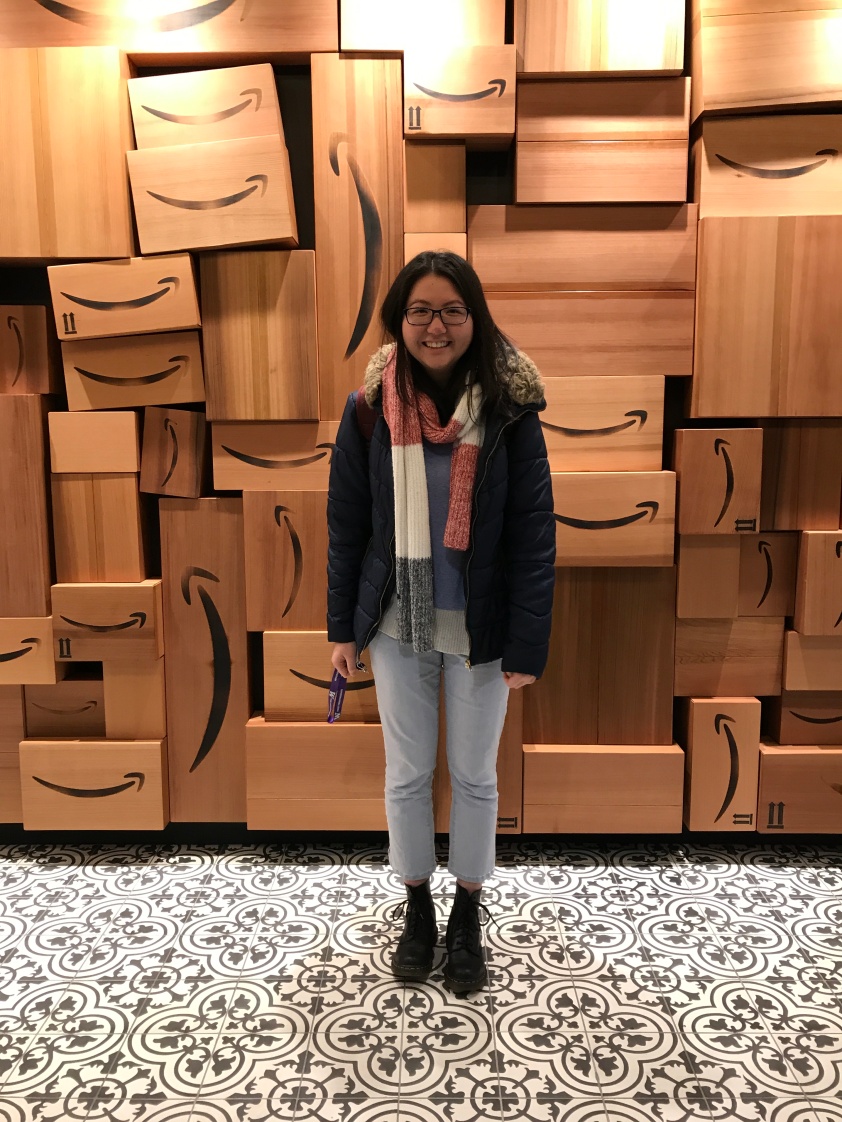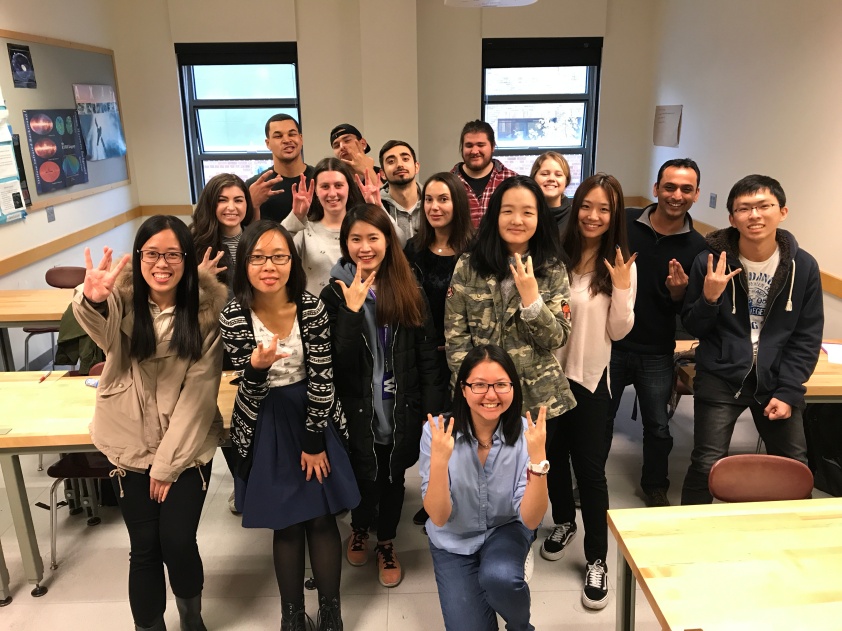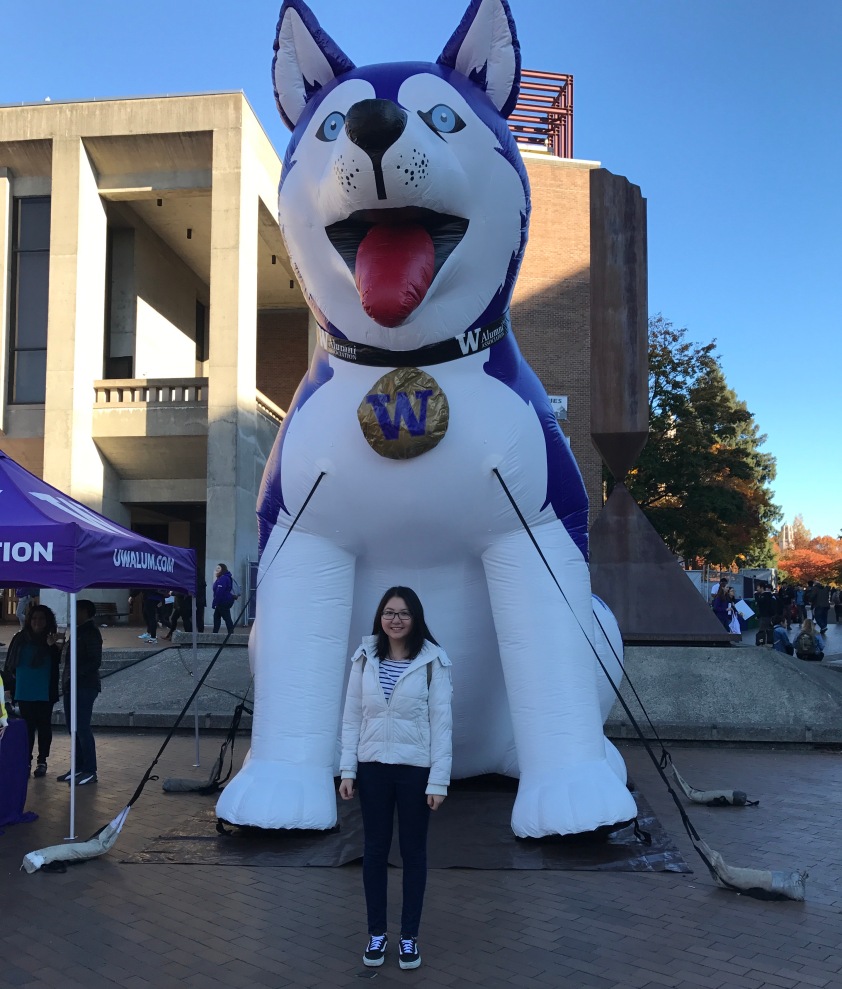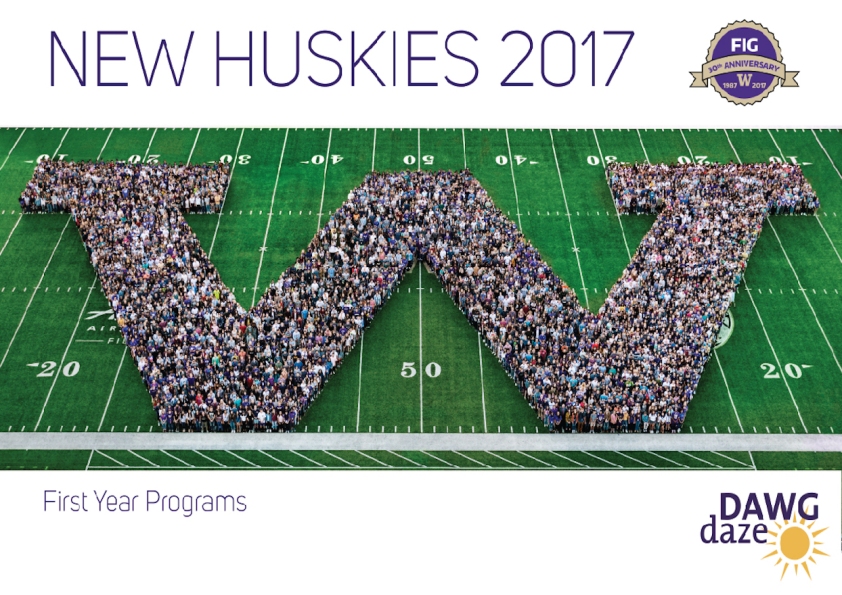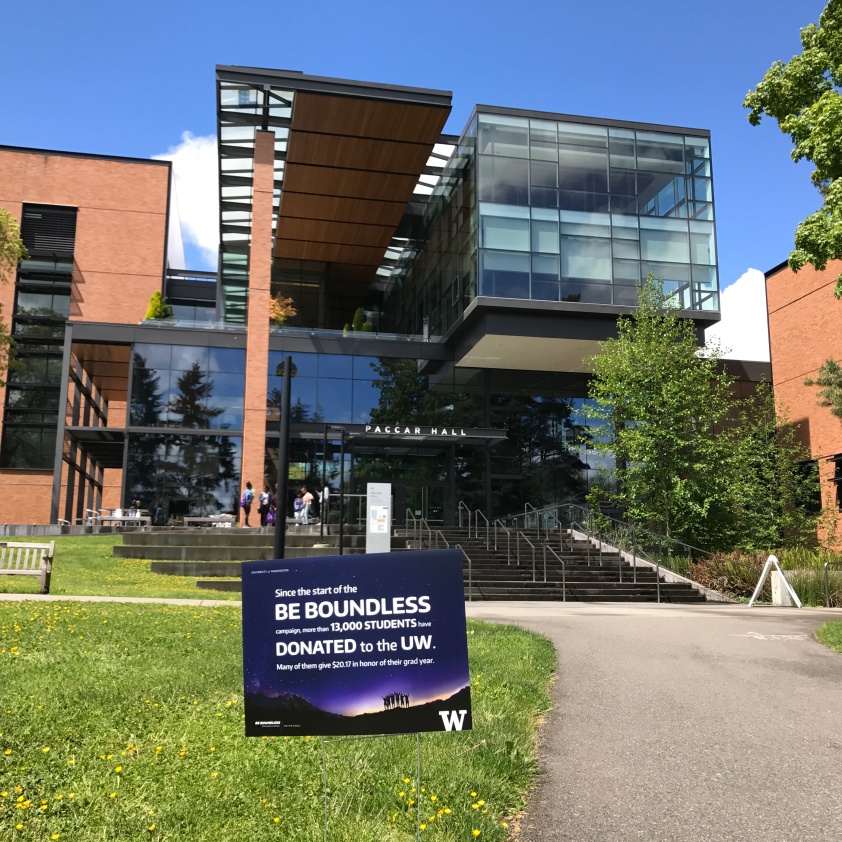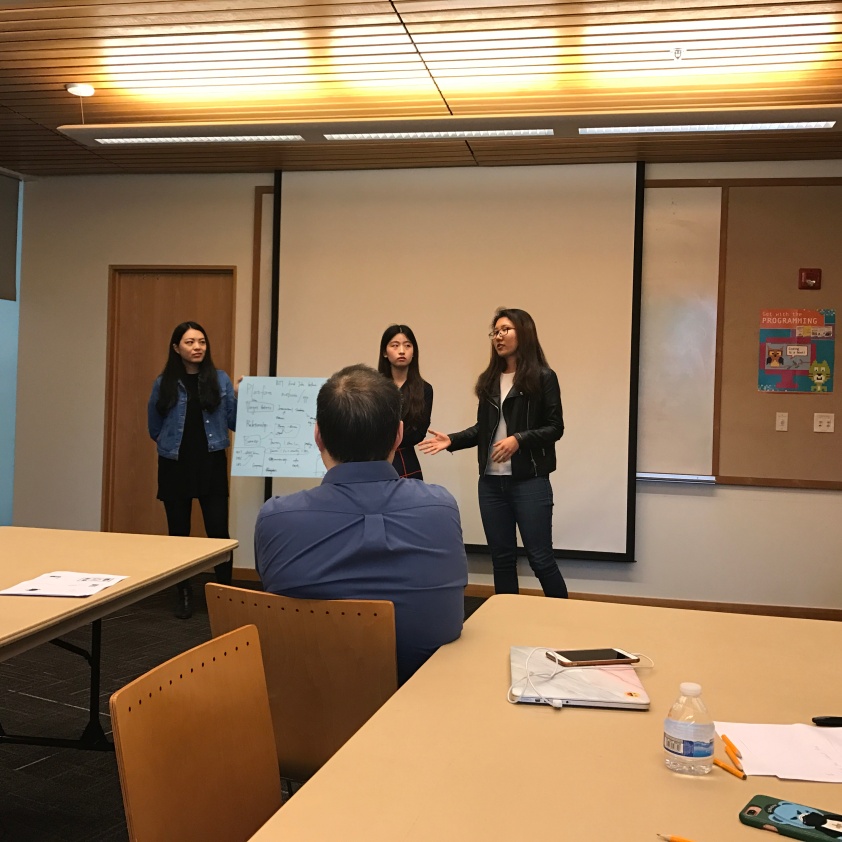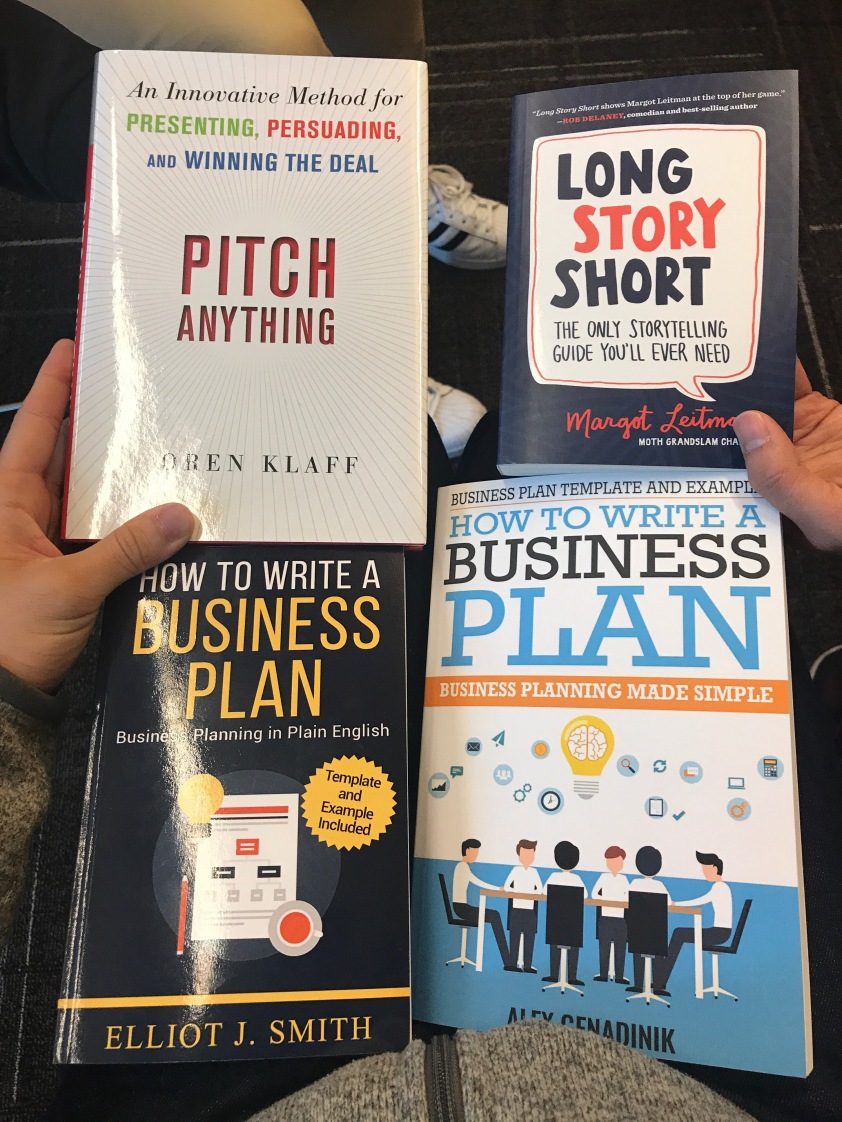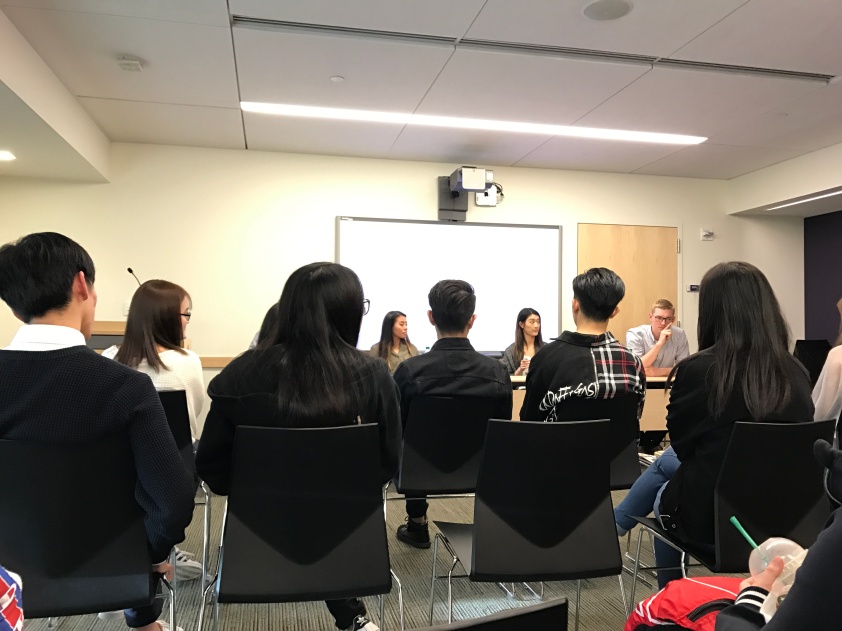Angel Chen
CASE Intern, UW Advancement
Christine Lessard, Director of The President’s Circle
July 27, 2018
Appreciation
Thank you all, CASE committee in UW, David Iyall, Malik Davis, Christine Lessard, Roxanne Christian, and Andres Boyer, for choosing me to be this year’s CASE intern, and dedicating many of your valuable time in career-coaching, mentor meetings, and project guidance. Thank you for offering the most rewarding internship for me in this summer.
Meetings
- University Leadership: Denzil Suite, VP from Student Life. slvp@uw.edu, I shared about my UW story, as a Husky 100, international student from China, transfer student from Spokane. He mentioned his send-off trip in China and talked about building a new office called CIRCLE in the following fall quarter, for connecting international students and domestics students and cultivating an inclusive campus.
- UWAA Board Meeting at GIX Building: It was such a great experience to see all phenomenon people in a room and get to talk to some of them! The meeting is about discussing resolutions regarding Bylaws amendments about Board composition, welcoming new trustees and thanking outgoing trustees. The most interesting part is GIX tour, visiting GIX facility, such as Tsinghua Library, student maker spaces, and innovative classrooms. I was in the strategic discussion session with Nate from Yakima (another fun people from 509 area), Joe Davis from UW Tacoma, and even sitting right next to our UWAA current president Aggie and the head of Regional Advancement, Stephine Doyle for lunch! The discussion question was about what we learn from GIX tour and how shall we promote this new graduate program. And I talked about my experience joining the GIX innovation competition on July 14, in the exact same room, but I was the only undergrad there in the stage. So, hosting more competition for undergraduate students could be an example for GIX promotion, attracting more talents from different areas to apply, not only CSE, but also fine arts, math, econ, business and more.
- UWAA Engagement Summer Session, Betsy Brown, betsyb1@uw.edu ; I helped out with the early greeting in the check-in station, and joined the following sessions:
- Opening: Leading with Authenticity by Priya Frank
- Engagement with an Equity Lens, a panel with Christine
- Digital Engagement by Ben Erickson and Isaiah Brookshire
- Development Roundtable by Dan Peterson
- Closing: Barbara Earl Thomas
The closing part is the highlight of the event, Barbara’s speech was quite inspiring, “You need to get used to be in chaos.” I will carry her spirit in the future, be bold in the chaos.
- The President’s Circle, TPC, July 19
- Event Preparation: I prepared TPC packaging for all levels of donor, silver, purple, and gold, and especially the one for the Gates. I felt very warm imaging how excited donors will be when receiving the rebranded TPC cards and packages. Among those 1000+ envelopes that I made, I also learned a vital professional lesson, there are plenty of good things in a job, but definitely will be some parts that you do not like as much. How to adjust emotions is also very important.
- Event day: I worked as a photo bus coordinator, guiding TPC guests how to take event photos and it was very impressed to see lots of alumni couples coming in their 70s, shakenly walked on the bus. Here is the link for all pictures. It is worth mentioning that I even get to take a picture with the President Cauce!
- Information meetings:
- Stewardship & PMRA Research Team
- All three interns had information meetings with PMRA team in the first three days, but the training was really overwhelming, and I barely remember anything except Andres’s email address. But I do recall there was a really good bake-out session, which all three of us tried the best pastry from their team.
- Annual Giving
- Had a meeting with Emily Fondaw, fondawer@uw.edu, Associate Director for Major Donor Stewardship, and knew the differences and similarities between her program in annual giving and Christine’s TPC, one considers the accumulative total giving and the other for one fiscal year only. It is quite a challenging to make figure out how to distinguish the stewardship for donors in the intersection of both programs, or only in one.
- Annual Philanthropy
- I sat right next to the AP team for the past few weeks and had 1-1 information meeting with most of their team members, Jen, Cara, Nelmy, Josh, and Rose. The biggest takeaway would be, a learning mind-set! Always be passionate to learn something new. Afterwards, I started to learn more coding during my spare time in weekend, staying in Odegaard library until 10 pm.
- Donor Relations
- Sat in a donor meeting with College of Engineering (CoE), cultivated connection with Daher, a supplier for Boeing, and learned about donor-approaching process. (many thanks for Dave for connecting me to Val and Jill from CoE)
- Stewardship & PMRA Research Team
- Multiple mentor meetings:
- Malik – it was our first mentor meeting with committee member. I enjoyed hearing about Malik story and knowing the importance to be yourself, to initiate relationships.
- Roxanne – Roxanne’s story is mind-blowing!
- Kyle – we met in Washington Athletics Club, practiced how to set up donor meeting via phone calls, and I love his life lesson: show up, lean in, and have fun.
- David – we talked more about our trip to DC, our individual internship experience, and shared feedbacks and suggestions. I really appreciate all the communication work Dave have been doing even before the internship started.
- Christine – today, last day of our internship as a recap.
Projects
With Regional Team:
I worked closely with Sophie Lee, Assistant Director of International Alumni Relations in Regional Advancement, seungwha@uw.edu
- Trip planning for Sophie on itinerary, board member research form, and expense form, for increasing efficiency of Sophie’s Asian trip, better connect with board members in Thailand, Korea, and more.
- Write up the International Student Send-off Package for Office of Student Life, for guiding through the send-off project management process, and improve international students’ send-off experiences.
- Conduct LinkedIn Region Research, update all possible prospects from LinkedIn, add in their contact information and notes about their potential interest area. It would be a great reference for engaging international alumni and re-connecting with some lost prospects.
Work Accomplished:
1, ShareLatex, a tool to write up reports. Here is the link to edit the send-off package document.
2, Google Doc, where you can easily edit it, attached docx is the completed version of final draft.
With UWAA Technology Team:
- Learn from Ben Erickson, Manager of Digital Engagement Strategies, bperick@uw.edu on modifying modules in Marketo, a digital engagement product focusing on customization for mass email communication, aim to better engage with our targeted audience and amplify our campaign messages.
With UW Impact:
- Phone2Action & Nation Builder Data Migration
Perform UW Impact 2017 – 2018 Advocates data-cleaning on Phone2Action, to emphasize the priority of higher education for state lawmakers and connect advocates across the Washington state, categorizing all these advocates information will help widen our UW political advocate network.
Suggestions
- I didn’t have much time to work on CASE webinars and cohort projects with other UC system’s schools, thus, I would definitely suggest CASE to have a workload survey to each school unit before assigning projects to interns if possible.
- Before DC conference, it would be nice to know which aspects interns are working on and separate them in different groups (i.e., maybe form a focus group on all interns working in stewardship, in marketing or in prospect research) so that we can also learn more specific skills in the work and share them with intern fellows, or even this idea is better than a board cohort project, which now is designing a plan for the Advancement Department in University of Detroit Mercy.
Next Steps
- I am applying for the Gates Internship for continuing advancement work with Dan Peterson, and I will meet with Dan on Aug 7 for an interview.
- Then I will continue finishing up my last three math classes (9 credits) in the fall quarter and actively seeking entry-level jobs/internship starting from Mid-December of this year. Currently, I have applied to UMAC team as an event intern for the fall quarter, and I will have an information interview with Regional Team, Isaiah on International Marketing on Aug 14.

